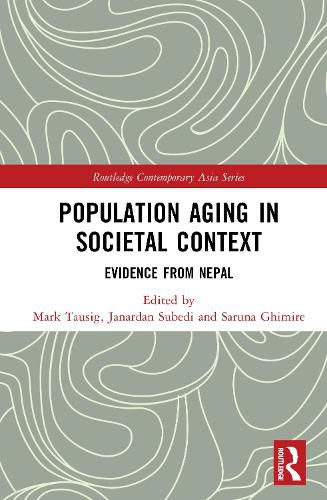Readings Newsletter
Become a Readings Member to make your shopping experience even easier.
Sign in or sign up for free!
You’re not far away from qualifying for FREE standard shipping within Australia
You’ve qualified for FREE standard shipping within Australia
The cart is loading…






This book offers an explanatory schema for comprehending aging in a societal context, focusing on the case study of Nepal.
Contributions to this book use an institutional contextual approach and a life course perspective to document and assess societal responses to the increase in older adults in a given country. This emerging age group entails the development of new and modified social institutions, new and modified cultural norms, and the reallocation of social resources within each country. The study represent an efficient means to understand the status and needs of older adults systematically and to orient policies and programs intended to address the increase in the older population. It can be applied to other countries grappling with similar challenges of rapid population aging and significant social change.
A pioneering effort in understanding aging as a social process embedded in social, economic, cultural, and life course contexts, this book fills a gap in Asian Studies, Social Policy and Population Studies.
$9.00 standard shipping within Australia
FREE standard shipping within Australia for orders over $100.00
Express & International shipping calculated at checkout
This book offers an explanatory schema for comprehending aging in a societal context, focusing on the case study of Nepal.
Contributions to this book use an institutional contextual approach and a life course perspective to document and assess societal responses to the increase in older adults in a given country. This emerging age group entails the development of new and modified social institutions, new and modified cultural norms, and the reallocation of social resources within each country. The study represent an efficient means to understand the status and needs of older adults systematically and to orient policies and programs intended to address the increase in the older population. It can be applied to other countries grappling with similar challenges of rapid population aging and significant social change.
A pioneering effort in understanding aging as a social process embedded in social, economic, cultural, and life course contexts, this book fills a gap in Asian Studies, Social Policy and Population Studies.